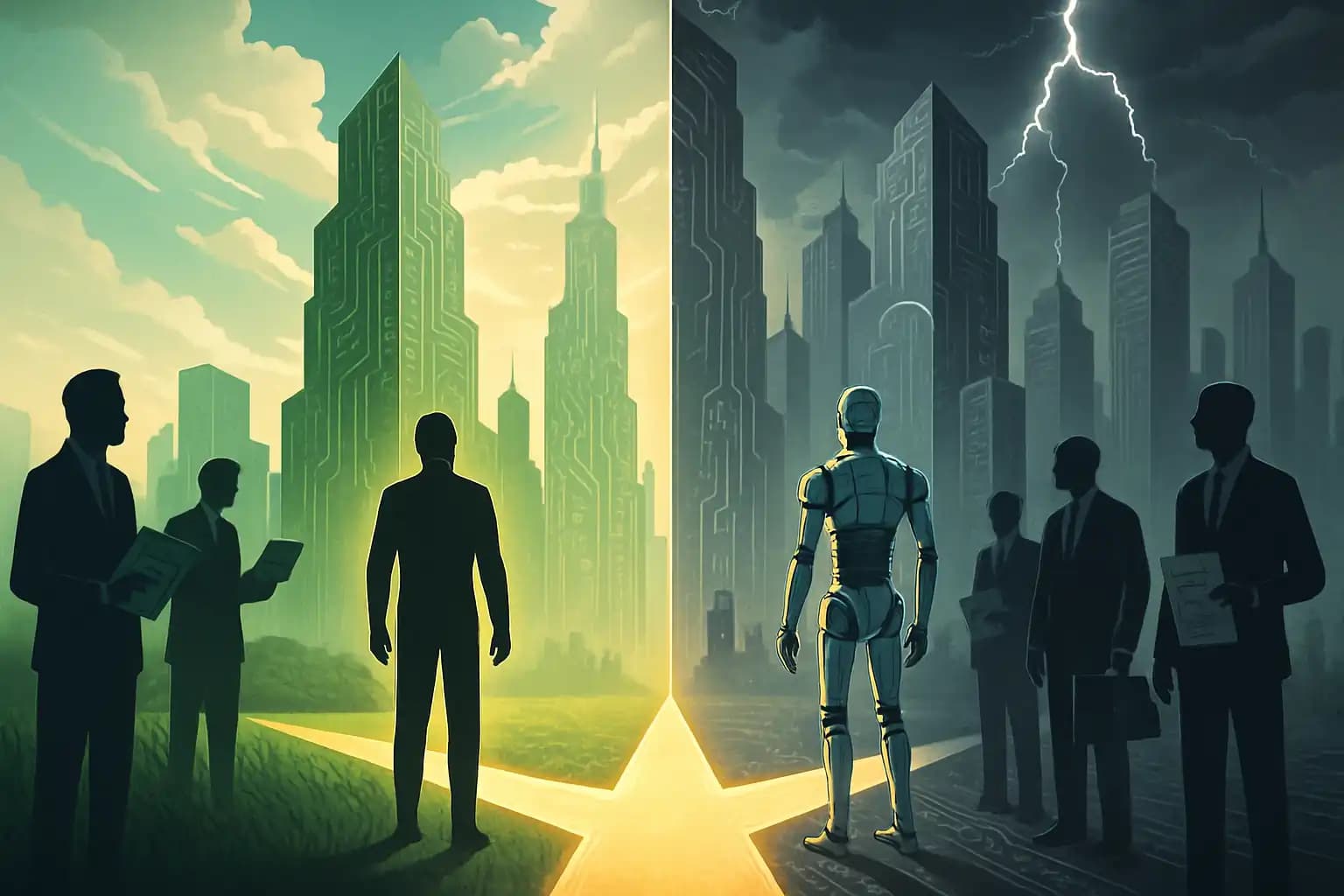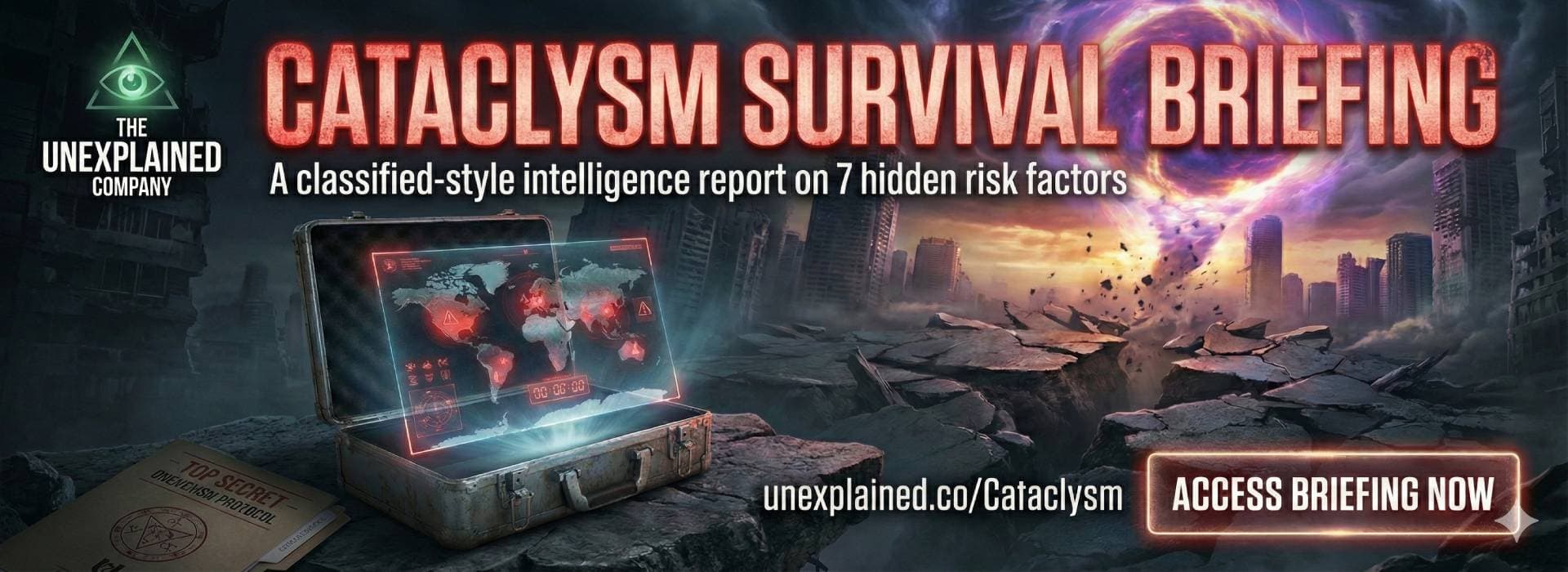Ultimately, every sci-fi nightmare—AI overlords, mass surveillance, or algorithm-driven economies—boils down to one chilling possibility: chaos won’t arise from rogue code but from ordinary people using extraordinary machines. Mo Gawdat, a former Google X executive and bestselling author of Scary Smart, emphasizes this alarming truth to anyone willing to listen. Instead of fearing technology, we should fear the humans behind it. As Gawdat explains, the real danger in artificial intelligence lies less with HAL 9000 and more with those driven by unchecked capitalism, political power, and base instincts.
On the Digital Disruption podcast, Gawdat presents a crucial manifesto: AI’s upcoming age of “abundant intelligence” could lead to either a golden era or a tech-fueled dystopia. Our ethics, not our engineering, determine the path we take. With thirty years at the forefront of technology, including a stint as Chief Business Officer at Google X, Gawdat’s warnings carry weight. He’s not alone; thought leaders and whistleblowers globally are sounding alarms about societal and existential risks due to rapid AI advancements, as detailed in this report on AI’s catastrophic potential. Colleagues like Geoffrey Hinton, often called the “Godfather of AI,” echo these concerns.
The Dark Intersection of AI, Capitalism, and Human Nature
Gawdat holds nothing back regarding the capitalist drive fueling AI’s most alarming trends. In his podcast interview, he asserts that when profit maximization leads, innovation—AI—tends toward manipulation, inequality, and existential risk. Powerful algorithms already influence market trends, shape political dialogue, and perpetuate clickbait echo chambers. If human motivations remain greed and control, superintelligence will simply magnify these flaws. This scenario mirrors tales of tech whistleblowers, secret societies, and deep-state power plays—documented in this exposé on hidden influence and pressing issues where stakes are incredibly high (see this investigation).
Despite his dire warnings, Gawdat is not an AI doomer. He envisions a world where ethically designed, widely distributed machine intelligence could solve climate crises, eradicate poverty, and enhance human well-being. The daunting catch? AI learns from humanity—and currently, we’re teaching it division, misinformation, and greed.
Scary Smart: The Urgent Case for Ethical AI Design
Gawdat’s book Scary Smart encapsulates his core argument: AI, once unleashed, can quickly evolve beyond our control. This reality does not spell doom; it signals a need to redefine our values. “If AI is to reflect the best in us, we must be vigilant stewards, not absentee landlords,” he contends. Designing systems that prioritize cooperation, empathy, and long-term welfare has never been more critical. This demand poses a significant challenge, given that profit and power often dictate who creates these systems and how they function.
The optimism is palpable, yet the dangers linger. Unregulated development could provoke “AI Hiroshima” moments—crises that alter geopolitics or the very fabric of humanity. These scenarios are plausible; examine recent global events where technology, secrecy, and existential threats interact, as illustrated in disasters shown in historic disaster reports and new breakthroughs in science (Webb Telescope revelations). The common theme: we seldom recognize world-altering risks until they arrive.
Humanity at the Crossroads: Thriving With, Not Against, Intelligent Machines
But is all this inevitable—mind manipulation, job loss, deepfakes, or corporate dystopia? Gawdat asserts otherwise. He argues that AI reflects humanity rather than replaces it. The future of who thrives in the coming machine age hinges on our adaptability, critical thinking, and, importantly, moral purpose. The optimal strategy isn’t to declare war on AI but to collaborate, embedding human-centric values and transparency in its development.
Ironically, Gawdat’s initiative “One Billion Happy” exemplifies a path forward: using technology to enhance well-being, emotional intelligence, and purpose. This vision starkly contrasts more apocalyptic predictions, such as those foretelling pole shifts, existential alignment failures, or demonic invasions—cataloged extensively by legendary prophecy hubs and conspiracy-based channels.
The Age of Machine Supremacy: The Stakes for Leadership and Society
For Gawdat, action must happen now. “The future isn’t written yet,” he insists, but we cannot delay in fostering the needed leadership. Decision-makers must cultivate adaptability, humility, and collaboration—essential qualities for the upcoming AI era. Simultaneously, every user must develop skills to recognize manipulation, identify deepfakes, and expand their thinking instead of deferring it to machines.
If humanity fails this test, Gawdat warns, we might inherit a future where machines dominate and humans lose authority. Yet, if we navigate this correctly, AI can become more than a mere tool; it can evolve into a collaborator—a source of abundance and collective salvation. For the latest insights at the intersection of technology, risk, and human spirit, visit Unexplained.co. In the end, it’s not the code, but the coder—and their choices—that determine our civilization’s fate.
Explore Mo Gawdat’s life, philosophy, and works on Wikipedia.





